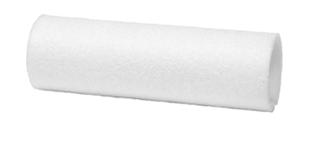Efficient nanofilter for three kopecks
In the garage of Hermann, after the experiment with the nanodose, there was still unfinished furniture, but the experiment moved to another plane: now healthy men smoke into the filter and test its capabilities in Sveta.

The device uses titanium dioxide nanoparticles with the addition of platinum and palladium. Under the influence of ultraviolet radiation (320-400 nm), all impurities in the room (gas, dust, viruses, bacteria) decompose. There is no odor left.
Produces such filters Russian company Airlife. In the video - two filter options: large - for working in smoking rooms in public places (airports, etc.), and small - a household filter for an apartment, a deliverer from dust and other things. These filters are also used to kill bacteria in operating rooms, for example, they have successfully tested and used in the Laser Clinic GP Center ASTR of the Russian Ministry of Health.
')
Without going into details of semiconductor physics, the magic of the device described can be explained as follows: under the influence of ultraviolet light on titanium oxide, accumulations of oxygen ions of the O and OH radicals incredibly form on the surface of the filter, which directly oxidize any organic matter that interacts with ( some inorganic compounds, too, will not be able to survive from the destructive particles). Impurities do not accumulate in the filter, and under the action of ultraviolet radiation in the presence of a photocatalyst, decompose into completely harmless components of the natural air environment.
The size of the destroyed particles - up to 0.001 microns - this value is comparable with the size of viruses and molecules and is the physical minimum that can be achieved in principle. A small household filter manages to filter 100 cubic meters per hour, killing 94-96% of dust to 4 microns and 99% of dust more than 4 microns in size.
On the topic of three-kopecks: the filter itself costs 250 rubles :


The device uses titanium dioxide nanoparticles with the addition of platinum and palladium. Under the influence of ultraviolet radiation (320-400 nm), all impurities in the room (gas, dust, viruses, bacteria) decompose. There is no odor left.
Produces such filters Russian company Airlife. In the video - two filter options: large - for working in smoking rooms in public places (airports, etc.), and small - a household filter for an apartment, a deliverer from dust and other things. These filters are also used to kill bacteria in operating rooms, for example, they have successfully tested and used in the Laser Clinic GP Center ASTR of the Russian Ministry of Health.
')
Without going into details of semiconductor physics, the magic of the device described can be explained as follows: under the influence of ultraviolet light on titanium oxide, accumulations of oxygen ions of the O and OH radicals incredibly form on the surface of the filter, which directly oxidize any organic matter that interacts with ( some inorganic compounds, too, will not be able to survive from the destructive particles). Impurities do not accumulate in the filter, and under the action of ultraviolet radiation in the presence of a photocatalyst, decompose into completely harmless components of the natural air environment.
The size of the destroyed particles - up to 0.001 microns - this value is comparable with the size of viruses and molecules and is the physical minimum that can be achieved in principle. A small household filter manages to filter 100 cubic meters per hour, killing 94-96% of dust to 4 microns and 99% of dust more than 4 microns in size.
On the topic of three-kopecks: the filter itself costs 250 rubles :

Source: https://habr.com/ru/post/145394/
All Articles